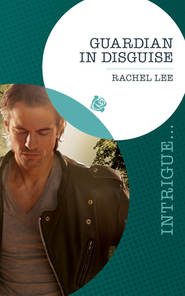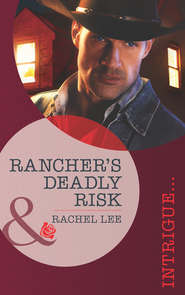По всем вопросам обращайтесь на: info@litportal.ru
(©) 2003-2024.
✖
Shadows of Myth
Автор
Год написания книги
2019
Настройки чтения
Размер шрифта
Высота строк
Поля
Sara had been planning exactly such an adventure that morning as she’d spread feed in the trough for the goat, drawn water from the well that gave the family and the inn its name, and picked an apron full of fresh tomatoes from their small garden. She’d gone into the pantry to put up the tomatoes and come out just in time to see her mother at the door, waving.
“I’m off to the market for flour,” her mother had said, the distinctive musical lilt in her voice as clear to Sara today as it had been six years ago this morning.
And then she was gone.
By midmorning, her father had grown anxious, and together they’d walked across the commons to the waterfront, first to the miller, then to the fish market, then to every other shop along the row, from the wool and fur drying sheds to the ice house. No one had seen her.
Together with a growing band of friends, they’d searched the commons, shooing sheep from their paths as they walked, then fanned out into the town as word spread before them. Townsfolk had checked back gardens, sheds, the stables, the waterfront again, the commons again. They’d expanded the search outside the wall, as farmers walked their fields and trappers looked for tracks in the dense pine forest that swaddled the rugged hills around town like a green blanket.
It was as if she had vanished into thin air.
A pall of gloom had hung over the harvest festival that year, as it did again this year. Winter had come too soon, with bitter nighttime cold borne on the wind that whistled through the Desa Pass and down on Whitewater like an angry avalanche, turning leaves black and crops to mush. The farmers had taken to their fields early, and the townsfolk to their gardens. With autumn only just begun, they’d done what they could, but it was not enough. Not nearly enough. Just last night, in the public room, she’d heard a man say he’d lost nearly half his crop. The other men had nodded agreement. It would be a lean winter.
Sara pulled her cloak tighter around herself and went upstairs to clean the few unoccupied rooms. The cold had forced the trappers down from the mountains early, for not even the hardiest soul dared risk being stranded in these mountains, where temperatures could plunge from mild to deadly in the space of an hour. There would be few white wolf pelts to sell downriver.
At least there would be ale. Her father had put up extra barrels over the past three years, when the fields had been lush with hops, barley and malt. He would trade more this year, he’d told the men in the public room last night. Deepwell ale was a prized commodity downriver. It would make up for the lost pelts and bring in enough grain from the valley for the town to make it through the winter. They would get by, he’d reassured them. Whitewater folk always got by.
But the barge caravans had grown sparse as the summer wore on, and the big harvest barges were three weeks late. There would be no fish chowder and fry bread at this year’s festival. Only mutton stew. And four barrels of ale.
Sara tried to shake off the sense of doom that seemed to stalk her like a hungry mountain lion. Her father had spoken reassuring words in the public room, but in their private quarters, his face was dark. Sara could almost read the troubled thoughts as they flickered across his face. And last night, again, she’d heard his quiet sobs through the wall.
He had, no doubt, once again taken out the white wool cloak and white lambskin boots he’d bought that same day six years ago, intending to give them to his wife six years ago this morning. She’d thought of suggesting he should sell them but could never bring herself to do it. For they were more than mere memorabilia. They were the tangible hope that someday, by some miracle, the light would walk back into his life.
There should be children, Sara thought. Children bouncing in the courtyard, helping her mother to hang the dried stalks of barley and string the seeds and pinecones that would dangle from the trees. Children scurrying around the commons, chasing sheep and splitting the morning air with high-pitched peals of laughter. Children in the public room, sitting on their heels, eyes wide, breathless, hands clasped tight, as the old men’s voices rose and fell in the cadence of old poems, their words rich with the tension of the hunt or the din of battle.
There should be children underfoot, Sara thought, returning to the kitchen where her father sat, looking out the window at the women crossing the commons on their way to market, their bodies hunched and leaning into the north wind. There should be joy instead of this grim, quiet determination that folk in Whitewater adopted to steel themselves for hard times and winter storms. There should be hearty laughter, and hearty fish chowder with just a splash of mead added to make it sparkle on the tongue and glow in the belly.
Instead, there was only the unceasing moan of the wind. And mutton stew.
“There’s evil coming,” her father almost whispered, his gaze still focused out the window. “Evil and blood.”
Yes, Sara thought. Evil and blood.
And more loss.
2
The woman slid deeper into the bushes as the blue-black forms padded silently through the morning mist. Strange men, tall and slender, with long, sinewy muscles that rippled like the flanks of a horse. Their nostrils flared as they sniffed the breeze, dark eyes seeming to search every shadow, their broad, curved swords at the ready. The two men stopped. The one on the right flicked his tongue over his lips as if tasting the forest. An almost inaudible series of grunts emerged from deep in his throat. Then silence again, save for the breathy whisper of the breeze moving through pine branches.
She silently cursed herself. She had heard the rhythmic clip clop of horses’ hooves on the road long before she had seen anyone and slipped off into the underbrush. But she had gone to the river side of the road, leaving herself upwind. It was a stupid mistake, born of exhaustion and sorrow and thoughts of the dead girl she still held to her breast. But the reasons didn’t matter. If they scented her, she would still be just as dead.
She scooted backward a few more feet, into the deep shade of a low-spreading pine, almost burrowing into the pillow of dry needles that lay beneath it, feeling the sap stick to her skin. Her eyes remained focused on the two men, their skin so dark it glimmered an iridescent blue in the shadows, as she gingerly reached around for anything she could use as a weapon. The man on the right sniffed again, then lowered his sword. She realized she’d been holding her breath, and tried to let it out slowly and silently.
It was then that she felt the sharp prickle against the back of her neck.
“Ee-esh mah lah-rain.”
Like the girl’s words last night, these words flowed like water. But the man’s tone of voice left no doubt. This was no plea. It was a command. Hoping she guessed the meaning correctly, she extended her arms beside her, spreading her fingers to show that her hands were empty, all the while kicking herself mentally for being so intent on the two men on the road that she’d missed the one who had apparently circled behind her through the woods. A beginner’s mistake. The kind that got people killed.
“I mean no harm,” she said. Then, remembering, she added, Oon-tie.”
“Rah-so-fah-meh lay-esh?” the man asked.
Or so she thought, assuming that the rising tone at the end of the sentence indicated a question.
“Oon-tie,” she repeated. “Oon-tie.”
“Foe-doo-key,” he said, and she saw two pairs of unshod, blue-black feet approach through the underbrush, stopping just beyond her reach.
She drew a breath, rich with the scent of pine, and let it out slowly. “Oon. Tie.”
The pressure of a boot in her side told her the man wanted her to roll over. She did so, slowly, wrapping her arms protectively around the girl, even knowing the act was futile. “Oon-tie.”
The man was tall, over six feet, with piercing gray eyes that almost glowed beneath the black-green cowl that nearly hid his face. Unlike his companions, his skin held the darkening of weather, the tan of many suns, but nothing of the deepness of night.
The prickle had traced around her neck as she rolled, and now she saw the sword, as long as her leg and broad as her hand, curving upward to a menacing point that rested against the pulse in her neck. The rest of his cloak was as black as the cowl, the barest hint of deep green in its folds, making him almost invisible in the darkness of the forest. Even if she’d been looking for him, she might well have missed him. The boot on her shoulder was soft leather, snug to the foot and muscled calf. One gloved hand held the sword, while the other rested by his side, the barest twitch in the last two fingers the only indication that the man sensed danger.
“Ay-oon-tie?”
She started to nod, then remembered the sword and held her head still. “Oon-tie.”
The man casually used his sword to nudge her arm from her chest, then open her cloak. His eyes seemed to bore into the girl’s body.
“I found her last night,” the woman explained, hearing the plea and pain in her voice. “She shouldn’t have died. I treated for her shock, and the wound was superficial. She shouldn’t have died. I didn’t kill her.”
The two blue-black men seemed confused by her words, and they exchanged almost inaudible grunts with the black-cloaked man whose sword rested on her collarbone. The men’s body language said the cloaked man was the leader. Finally the cloaked man lowered his sword and extended a gloved hand. Inviting her to get up, or so she hoped.
She reached for the hand, and he grasped her wrist. His grip could have snapped the bones in her hand like so many dried twigs, but he hefted her to her feet, then sheathed his sword, as if neither she nor the sword weighed an ounce. He reached for the child.
“No!” she said, half turning away.
He paused for a moment, then lifted the cowl from his head to reveal hard, care-worn features beneath raven-black hair. The faintest hint of a smile creased his cold eyes.
“Leh-oon rah-tie,” he said softly, in a voice that seemed to echo within him before making its way out into the world. He reached for the child again. “Leh-oon.”
Conflicting emotions warred within her. His tone, his face and his gesture seemed to convey “Please,” as if he were offering to help the girl. But she knew the girl was beyond help. And this was a man who, mere moments before, had held a sword to her throat. And the girl was…hers.
Apparently seeing her hesitation, he repeated the word, more softly this time. “Leh-oon.”
Reluctantly she let him lift the girl from her arms. He took her gently, supporting her head with one hand, and seemed to study her for a moment. His eyes flicked up to her, cold and hard.
“Trey-sah.”
The woman shook her head. “I don’t understand.”
“Trey-sah,” he said again, motioning toward the girl with his head. “Tah-ill loh trey-sah.”
She compressed her lips, studying his eyes. Then it clicked, and she slowly nodded. “Yes. She’s dead. Trey-sah. Last night.”











